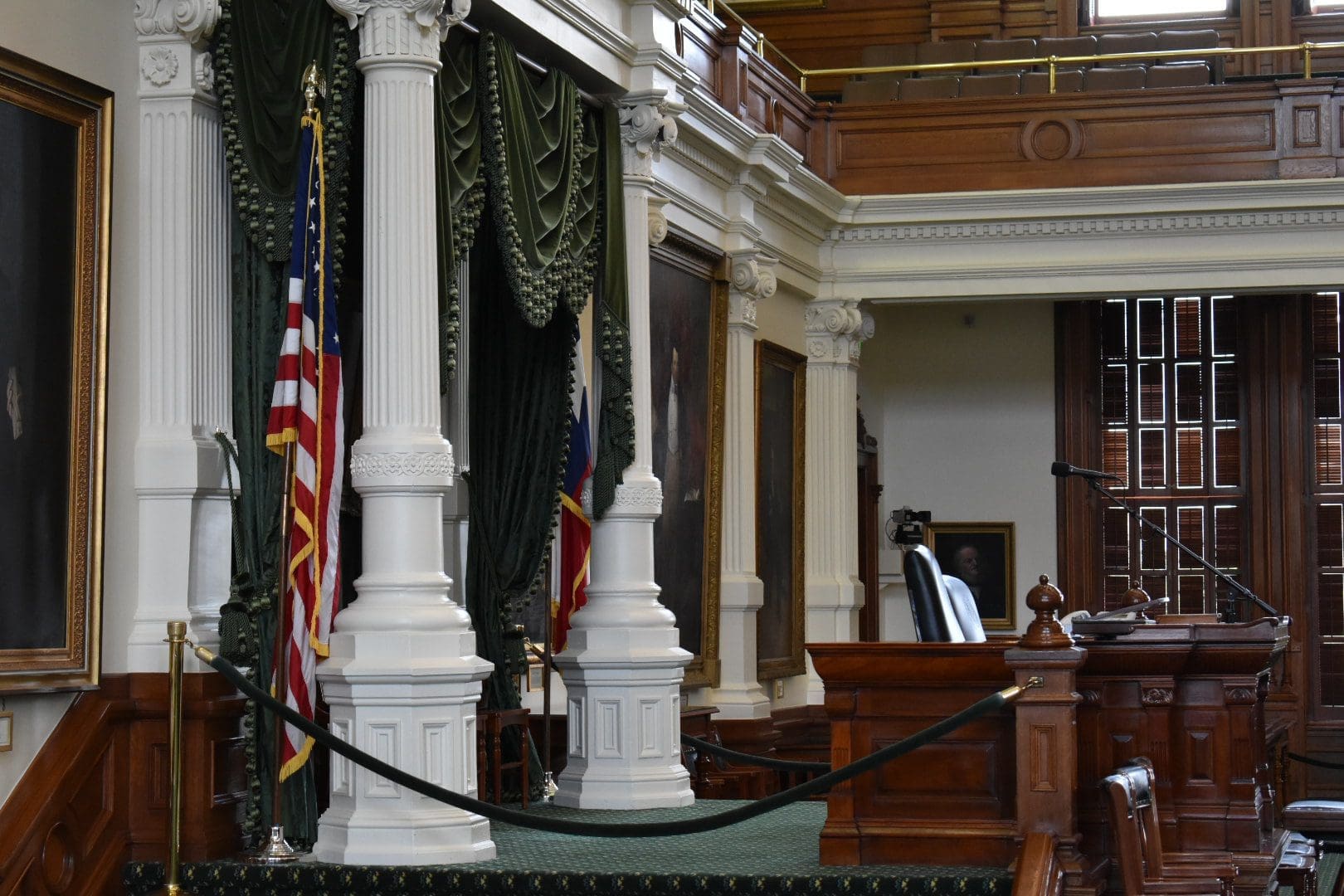Members of the Texas House convened Wednesday to adopt their rules for the 86th Texas Legislature and did so after making a few tweaks along the way, but perhaps the bigger story isn’t what they did do. It’s what they didn’t.
Conservative Republicans have for years sought to amend a number of provisions in the rules in order to increase transparency and provide for greater citizen influence.
In advance of the session, members of the State Republican Executive Committee chose two to highlight:
- Permitting electronic testimony from lawmakers’ district offices
- Allowing legislation with 75 coauthors to immediately proceed to the floor
The first relates to allowing citizens to register their opinion on legislation at lawmakers’ district offices (a change from the current requirement which only allows them to do so in Austin). Pitched as a change to enhance citizen participation in the legislative process, this change was attempted in 2017 by State Rep. Jonathan Stickland (R–Bedford), but only received 19 votes.
During the debate on the rules Wednesday, Stickland again offered his amendment but it failed by an even greater majority — securing only 15 votes according to the unofficial record in the House Journal.
Some of those losses are due to members being out of the chamber (State Rep. Dwayne Bohac of Houston) or having been defeated in the general election (former State Reps. Matt Rinaldi and Mike Schofield), but a large number come from lawmakers who flipped on the position.
Republican State Reps. Dustin Burrows (Lubbock), Cole Hefner (Mt. Pleasant), Brooks Landgraf (Odessa), Mike Lang (Granbury), Jeff Leach (Allen), Matt Schaefer (Tyler), Matt Shaheen (Plano), and Valoree Swanson (Spring) were all shown voting against Stickland’s amendment after supporting it last session.
The second amendment would have allowed for legislation with the support of a majority of members of the Texas House to proceed to the floor for a vote — a measure called for explicitly by the SREC which would have enabled the passage of the Texas Privacy Act last session.
Legislators, including conservative ones, didn’t even offer the amendment.
Instead, they either sat out the rules debate entirely or worked against taxpayer interests. The latter was the unfortunate case for State Rep. Matt Schaefer (R–Tyler).
A “Taxpayer Champion” in his three previous sessions in Austin who frequently claims his purpose as a legislator is to “amplify the voice of the grassroots,” Schaefer attempted to convince his fellow lawmakers to increase their own office budgets beyond the already accounted for $1,000 increase for the session — a move even State Rep. Charlie Geren (R–Fort Worth) said lawmakers didn’t have the money for!
Thankfully, Schaefer’s amendment was defeated. Unfortunately, no lawmaker requested a record vote on the issue, so it won’t be eligible for inclusion in the Fiscal Responsibility Index.
Note to Charlie Geren: You missed out on a great opportunity to begin the session on the right foot.
Wish you would have called a record vote on opposing the amendment increasing the #txlege House interim budgets, @charliegeren; would have supported your motion on the Fiscal Responsibility Index.
— Michael Q Sullivan (@MQSullivan) January 9, 2019
To say Republican activists across the state should be annoyed by what happened during the rules debate would be an understatement.
That said, there were still encouraging signs. State Rep. Mayes Middleton (R–Wallisville) showed great courage and cast aside the conventional wisdom that freshman lawmakers should “sit down and shut up” during their first session. He offered an amendment to the rules to impose term limits on the Speaker and his committee chairs.
Texas House Speaker Dennis Bonnen should also be commended for how he handled it. After Middleton offered his amendment, Bonnen stepped off the dais as to not be perceived as attempting to communicate his opinion on the measure or “put his thumb on the scales.” While we’re only two days into the Texas Legislature, Bonnen’s promise of a member-driven House and allowing lawmakers to vote in accordance with their districts has thus far been kept.
Perhaps that’s what makes Republican lawmakers’ refusal to even offer additional amendments to the rules so frustrating — there wasn’t any fear of blowback for doing so, and they still refrained from even attempting.
Joe Straus might be gone from the Texas House, but the levers he abused in order to prevent the passage of conservative legislation remain. And if lawmakers are unwilling to go after them now that he’s out of the picture … well, then maybe all of their enemies who said it was all about opposing Straus were right after all.
That isn’t the case for Jonathan Stickland or Mayes Middleton, the two lawmakers who did stand up and offer amendments during the rules debate. But for the rest of them, it remains to be seen.
Each one of them has 138 more days to give Texans an answer.






